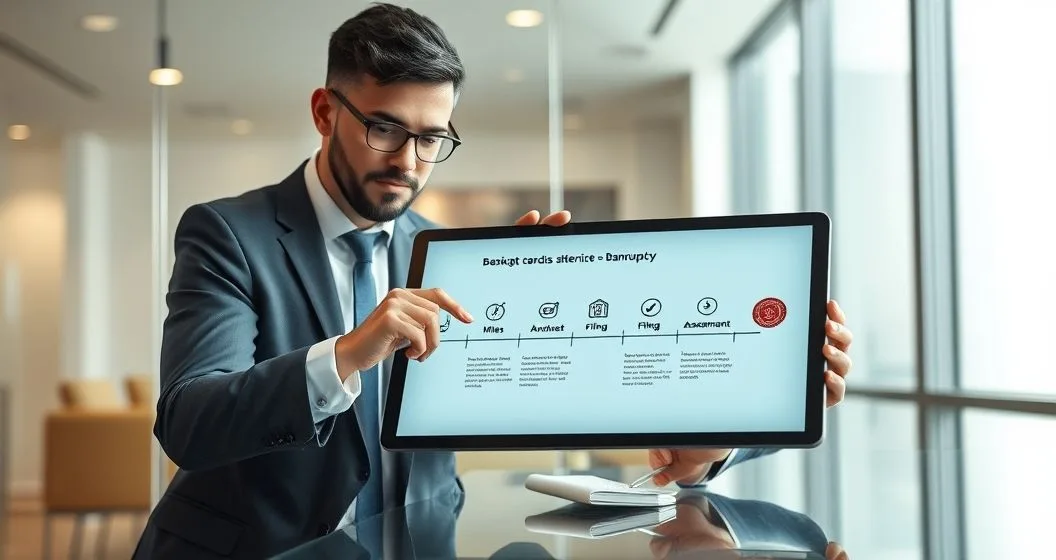Overview
Bankruptcy can permanently eliminate some income tax liabilities, but not automatically. Federal bankruptcy law and IRS practice set narrow conditions that generally determine whether a tax debt is dischargeable. These are often called the “tax-timing” and “fraud” tests. For authoritative guidance, see IRS Publication 908 and the IRS bankruptcy page (IRS Publication 908; IRS—Bankruptcy).
The four core tests for discharging income taxes
If a tax liability meets every one of these tests, it may be dischargeable in bankruptcy (11 U.S.C. § 523(a)(1); IRS guidance):
- Tax return due date (3-year rule)
- The tax return’s due date (normally April 15 for individual returns) must be at least three years before the bankruptcy filing date. Extensions that delay filing don’t change the original due date for this test.
- Return actually filed (2-year rule)
- The taxpayer must have filed a return for the tax at least two years before the bankruptcy filing. A late-filed return can still qualify if it was filed two or more years prior to the bankruptcy petition.
- Assessment (240-day rule)
- The tax must have been assessed by the IRS at least 240 days before the bankruptcy filing. Assessment means the IRS has formally recorded the tax liability.
- No fraud or willful evasion
- Taxes from fraudulent returns, willful tax evasion, or from a tax return that was not filed (or was false) are not dischargeable. Criminal tax penalties and certain fraud penalties are also nondischargeable.
(References: IRS Publication 908; 11 U.S.C. §523(a)(1).)
Which taxes are usually not dischargeable
- Trust fund or payroll taxes (e.g., withheld income and FICA taxes) are generally nondischargeable.
- Many penalties tied to fraud or willful evasion are not dischargeable.
- Recent income tax years that fail the timing tests cannot be wiped out.
How liens and collections are affected
Discharge eliminates the personal obligation to pay qualifying taxes, but it does not always remove existing tax liens on property. An IRS or state tax lien can survive bankruptcy and remain attached to real property unless separately avoided or paid. For how bankruptcy interacts with IRS collections and liens, see When Bankruptcy Can and Cannot Stop IRS Collections.
Chapter 7 vs Chapter 13 — practical differences
- Chapter 7 (liquidation): If taxes meet the discharge tests, you may receive a full discharge of qualifying tax debts after the Chapter 7 process completes. However, liens generally survive.
- Chapter 13 (repayment plan): Chapter 13 can be useful for dealing with recent tax debts that are not yet dischargeable—some older tax debts may be paid through the plan and then discharged at its end. Chapter 13 also offers longer protection from collection while you repay.
Example (simplified)
A 2019 income tax return due April 15, 2020, filed April 10, 2021 (late-filed) and assessed April 17, 2021: if the taxpayer files bankruptcy on May 1, 2024, the debt may be dischargeable because the due date is more than three years before filing, the return was filed more than two years before filing, and assessment occurred more than 240 days before filing — assuming no fraud.
Practical steps before filing
- Gather tax returns, IRS notices, and proof of assessment dates.
- Ask the IRS for account transcripts (Form 4506-T or get transcripts online) to confirm assessment dates and balances.
- Talk with a bankruptcy attorney and/or CPA to run the timing tests against your filing date and to consider liens and state tax rules.
Professional tips
- Keep precise records of filing dates and any extensions — these dates determine eligibility.
- If you have recent tax years that aren’t dischargeable, consider Chapter 13 or an Offer in Compromise as alternatives; compare costs, eligibility, and long-term impact.
- Don’t assume a discharge clears liens or payroll tax obligations — plan for property liens and trust fund taxes separately.
Common mistakes
- Believing all taxes are dischargeable — trust fund taxes and fraud-related liabilities are excluded.
- Ignoring liens — a discharged tax debt can still leave a lien on your house or other assets.
- Relying on verbal IRS statements — always get documents and transcripts to prove assessment and filing dates.
Short FAQs
- Can I discharge recent tax debt? No — income taxes must meet the timing and filing tests described above.
- Are state income taxes treated the same? Generally yes, most states follow similar rules, but check state law and consult counsel.
Related resources on FinHelp
- When Bankruptcy Can and Cannot Stop IRS Collections: https://finhelp.io/glossary/when-bankruptcy-can-and-cannot-stop-irs-collections/
- How Bankruptcy Can Affect Tax Debts: What Is Dischargeable?: https://finhelp.io/glossary/how-bankruptcy-can-affect-tax-debts-what-is-dischargeable/
- When to Consider Bankruptcy for Tax Debt: Limits and Consequences: https://finhelp.io/glossary/when-to-consider-bankruptcy-for-tax-debt-limits-and-consequences/
Authoritative sources
- IRS, Publication 908, “Bankruptcy Tax Guide” (see https://www.irs.gov/pub/irs-pdf/p908.pdf)
- IRS — Bankruptcy information for taxpayers: https://www.irs.gov/businesses/small-businesses-self-employed/bankruptcy
- U.S. Bankruptcy Code, 11 U.S.C. §523(a)(1)
Professional disclaimer: This page is educational and does not substitute for personalized legal or tax advice. For decisions that affect your taxes or bankruptcy options, consult a qualified bankruptcy attorney or tax professional familiar with current federal and state rules.



